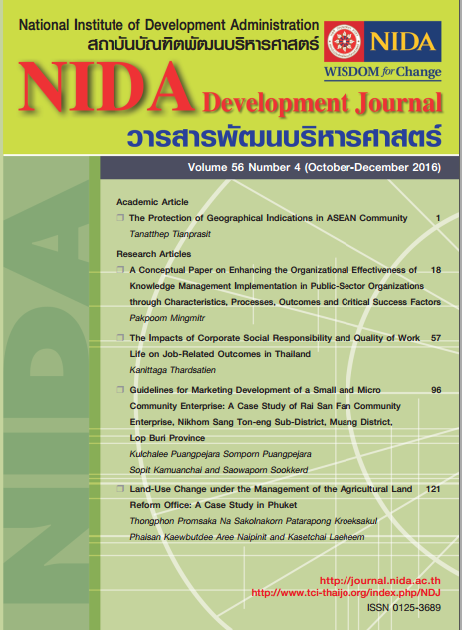A conceptual paper on enhancing the organizational effectiveness of knowledge management implementation in public-sector organizations through characteristics, processes, outcomes and critical success factors
Keywords:
Knowledge Management, Implementation, Effectiveness, Characteristics, Process, Outcomes, Critical Success Factors, การจัดการความรู้, การนำไปปฏิบัติ, คุณลักษณะ, กระบวนการ, ผลลัพธ์, ปัจจัยแห่งความสำเร็จAbstract
The purpose of this conceptual paper was to investigate the linkage of four elements of knowledge management (KM) – characteristics, processes, outcomes and critical success factors (CSFs) – to successful KM implementation and organizational effectiveness in public-sector organizations. The paper reviewed a large number of literatures on the effects of these four elements in order to map out an integrated model for KM success and organizational effectiveness. It posits that KM characteristics (i.e. transactional, analytical, asset management, process based, developmental and innovation/creation KM), processes (i.e. acquisition, creation, storage, transfer and application) and outcomes (i.e. competitive advantages) could have an effect on the KM implementation. Also, the CSFs (i.e. organizational strategy, organizational structure, leadership, culture, networks/communities of practice and KM system) could have an effect on organizational effectiveness, with regard to KM. The contribution of this paper is toward developing our understanding in a range of KM options and enhancing KM success and organizational effectiveness. Also, it can be used as practical guideline for improving the success and organizational effectiveness of KM in public-sector organizations in the future.





